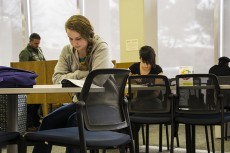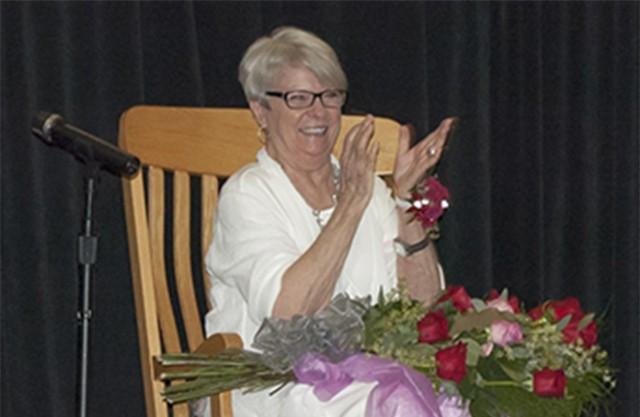By Gregory Hoeft/reporter
First-time-in-college students learn finding that perfect balance between more freedom and getting schoolwork completed on time can change from class to class.
Some instructors are sticklers for attendance while others are a bit more lax. Some instructors are all about reading and testing while others take a more creative approach and let students write essays to gauge their knowledge of the material. Whatever the case may be, juggling school, work, home and social life can be a struggle.

The Collegian file photo
First-year TCC student Dylan Garrett said organization is his key to success as he works toward his associate degree.
“I learned organizational skills from high school, especially skills being drum captain in marching band, that helped me keep track of my workload,” he said. “[During] my first semester at TCC, I was able to balance work and school to ensure I had taken care of my business.”
Choosing a major is vitally important to success, NE counselor Masika Z. Smith said.
“When students are able to connect with their dream … they begin to find meaning in their lives, and choosing a major no longer becomes a daunting task but instead [becomes] a decision that complements, supports and enhances their dream,” she said.
Smith said the word dream sounds magical and liberating to students.
“It provides the student the opportunity to dream big, push boundaries and limits, think outside the box and embrace that exploratory process with complete freedom,” she said.
Former student Sierra Sutton enjoyed a semester at TCC between enrollments at two major Texas universities. She said a positive habit she established while at TCC was to actively communicate with her instructors.
“The major difference between high school and college is that your teachers no longer hold your hand,” she said. “They don’t come to you if you are struggling or have questions as they expect you to do that yourself.”
Sutton admits learning how to reach out for help played a pivotal role in her success at TCC and created a solid foundation for her university success.
“This perspective has carried over into my success at a four-year university for two reasons,” she said. “First, you get the help necessary to do well in class. But second and maybe most importantly, you show that you took the initiative, that you have a willingness to ask for help when you need it along with the desire to do better. Gaining this skill made transferring to a large university easy as I was prepared to interact with my professors there and would ultimately lead me to a successful career as a college student.”
Sutton is currently set to graduate in December from Southern Methodist University with a degree in advertising and marketing.
Smith shared her three practical steps for student success. She said students should visit with their academic advisors or counselors several times during the semester. They should also learn about resources available on campus that support student success. In addition, students need to get involved. She said they can visit the student activities offices for information about campus clubs and organizations.
Smith urges students to use their voices. She said they should never be afraid to ask questions and should know how to ask. She also suggested they identify their learning styles and use them effectively in the classroom and beyond.
Finally, Smith said students need to learn to prioritize and manage their time.
TCC has counseling and advising centers on every campus with staff to help students with their needs. Students can reach these centers by phone at 817-515-4ADV (4238).





























